Numbers don’t lie, facts are stubborn mules
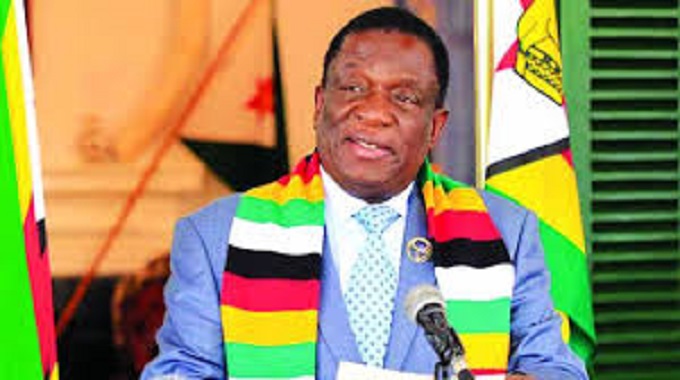
Fungi Kwaramba, Zimpapers Elections Desk
THINK of a bowl of soup; you don’t have to take it all to feel the taste but just a spoonful, such is the case with opinion polls that have concluded that if elections are held today, President Mnangagwa would win them comfortably.
In three separate opinion polls, it emerged that President Mnangagwa is more qualified to lead, he is trusted and is a peace-loving presidential candidate compared to all pretenders ahead of the 23 August harmonised polls.
This is science, not some abracadabra, where political leaders put divinity over fact, which are by their nature stubborn and won’t be conjured to bend to self-serving political fancies.
For perspective, let us turn the hands of time back a bit; into a not-so-distant past the American-based Fitch Solutions, a leading provider of credit intelligence and a source of up-to-date socio-economic and political data used by the world’s leading financial institutions, multinational companies and government agencies, as well as consulting firms in 118 countries, predicted that President Mnangagwa would win the elections by a majority of the vote.
In its January report titled, “Zimbabwe Country Risk Report”, which includes a 10-year economic forecast, Fitch Solutions also described President Mnangagwa as a “reform-minded” leader, whose Government will “focus on efforts to strengthen the economy and attract investment, as well as (in the short term) manage the socio-economic impact of the Covid-19 pandemic.”
“At Fitch Solutions, we expect that real GDP (gross domestic product) in Zimbabwe will accelerate to 2,4 percent in 2023, from 2 percent in 2022,” reads part of the report.
“The acceleration in growth in 2023 will be driven by a more expansionary fiscal policy in the run-up to the elections in the middle of the year and an easing of price pressures, which should provide further support to consumers.
“However, we still expect that Zanu-PF will win a comfortable majority in the parliamentary elections in August, with the ruling administration benefitting from a host of incumbency advantages.”
That publication was to be followed by another opinion survey that was carried by the Kenyan-based Pan African Forum Limited in March which similarly predicted that President Mnangagwa would win the elections by 75 percent.
The Pan African Forum Limited survey showed that President Mnangagwa enjoyed a 75 percent popularity ahead of his closest challenger Mr Nelson Chamisa who has a 19 percent popularity. 3,110 respondents took part in the study that was distributed proportionately to the voters’ register, according to Pan African Forum. There was a +/-2% margin of error at a 95 percent confidence level.
The study also shows that the majority at 98 percent of the registered voters “are very certain that they will vote in the next General Election.”
On party choices, the study shows that 69 percent of the respondents support Zanu-PF while 27 percent are loyal to the Citizens Coalition for Change party.
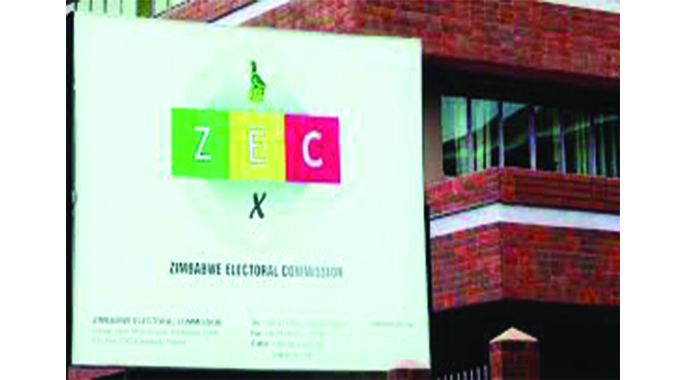
Zimbabwe Electoral Commission (Zec)
Perhaps the final nail in the opposition coffin is the latest report from Afrobarometer, a pan-African, independent, non-partisan research network that measures public attitudes on economic, political, and social matters in Africa.
Some of the opposition supporters disposed to meaningful discourse have admitted that the support of their leader Mr Chamisa is on the wane, not a brainer really, according to the survey, 35 percent of voters said they would vote for President Mnangagwa with 27 percent saying they would vote for Mr Chamisa.
Significantly, the support of President Mnangagwa has grown by 5 percent since last year as Zimbabweans continue to appreciate his works, in comparison, support for Mr Chamisa has shrunk by more than 6 percent.
Res ipsa loquitor (the facts speak for themselves), these findings from the three pollsters have one thing in common and that is a Zanu-PF win, of course for the ruling party that has been drawing unprecedented numbers at its rallies.
The numbers speak to its growing popularity but it’s more of a death knell for the ever-bungling opposition.
Blindly, like ostriches with heads stuck neck deep in the sand, some fanatical opposition functionaries and pseudo-academics have dismissed these polls, but as United Kingdom Professor Jouni Kuha, who studied the aftermath of Britain’s 2015 elections, public opinion polls are the best method to establish the electorate preferences.
Professor Kuha points out that between elections, “polls act as a feedback mechanism which could affect parties’ policy choices, whereas nearer to an election, they are feedback mechanism on how the campaign is going.”
However, their main use is prior to elections, where politicians use polls as a tool to inform their campaigns and to craft messaging. As such, they are not independent of the political process, Professor Kuha says. Rather, they could also influence voters’ behaviour by affecting expectations about the outcomes of the election.
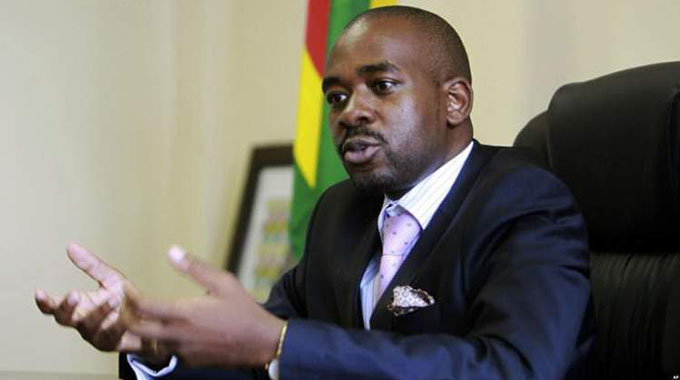
Mr Nelson Chamisa
When people vote for the party they think is going to win, this is referred to as the ‘bandwagon effect’.
Because polling results around voting intentions are often publicised, he explains, the information they provide can influence voters’ perception of the various parties’ likelihood of winning an election or the chances of being part of a coalition government. This can influence how people vote at the ballot box. When people vote for the party they think is going to win, this is referred to as the “bandwagon effect”. Alternatively, voters may evaluate parties more positively if their chances of winning appear to be good or evaluate parties more negatively if their chances seem to be low, in what is called the “boomerang effect”.
Despite some failures, polling remains the most effective way of obtaining voters’ opinions or concerns on key issues or voting intention, Professor Kuha says, stressing that while other sources of data such as social media can provide some insight to decode voters’ behaviours, they are unlikely to be as good a source for predicting voter intention or election outcomes, as it is largely inferential.
“The easiest way of getting opinions, attitudes, or voting intentions out of people’s heads is to ask them,” he concludes.
“Decoding a person’s voting intention from their social media posts is less parsimonious than asking them. Even though election polls, and surveys in general, might be seen as old fashioned, they are still the best way of obtaining people’s opinions.”
This is and was the purpose of the polls including one from a New York-based organisation that forecast a CCC defeat as the hoped-for opposition even manifesto by the form of economic implosion dissipates with the country’s currency strengthening against the greenback.
For the opposition, whose hopes hinged on an economic Armageddon, a fantasy that came to naught, the writing has been on the wall, what with the shambolic candidate selection process that saw the fielding of double candidates, imposition of candidates that resulted in disgruntlement and consequent disengagement, and the structural failure to have structures, in the form of a constitution.
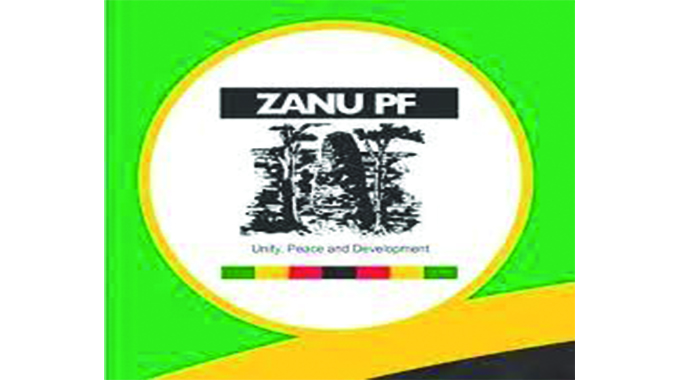
Zanu-PF
The contrast between Zanu-PF and CCC is that of day and night, oil and water, democrats, and dictators.
On one hand, President Mnangagwa entrenched democracy, developed the country economically, and opened Zimbabwe to the rest of the world.
It is all hocus pocus in the CCC, a party led by one man, who has no deputy, no chairman, no secretary general, and who for all purposes and intents leads a secret society that bizarrely seeks to assume the levers of power in a democratic country.
The opinion polls are a rude awakening to the opposition, albeit at the 11th hour because no social contract was established between the party and its members hence its diminishing ratings—which are made the more galling by a surge in the support of their opponents.
As was on record on Tuesday when at least 10 legislators left the smoldering opposition, it is clear the electorate, voting with their feet, are tracing their way back to the revolutionary party Zanu-PF, a party that isn’t a one-man band.

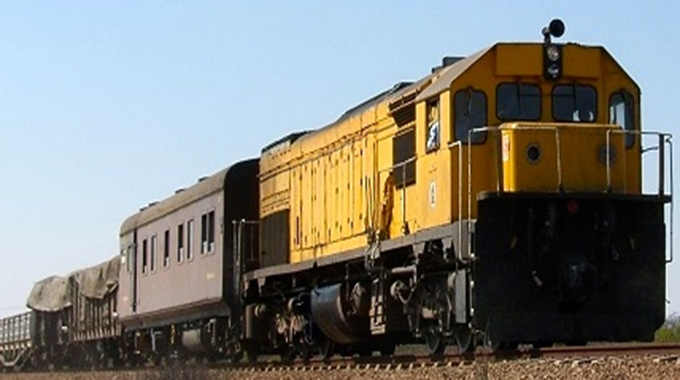








Comments